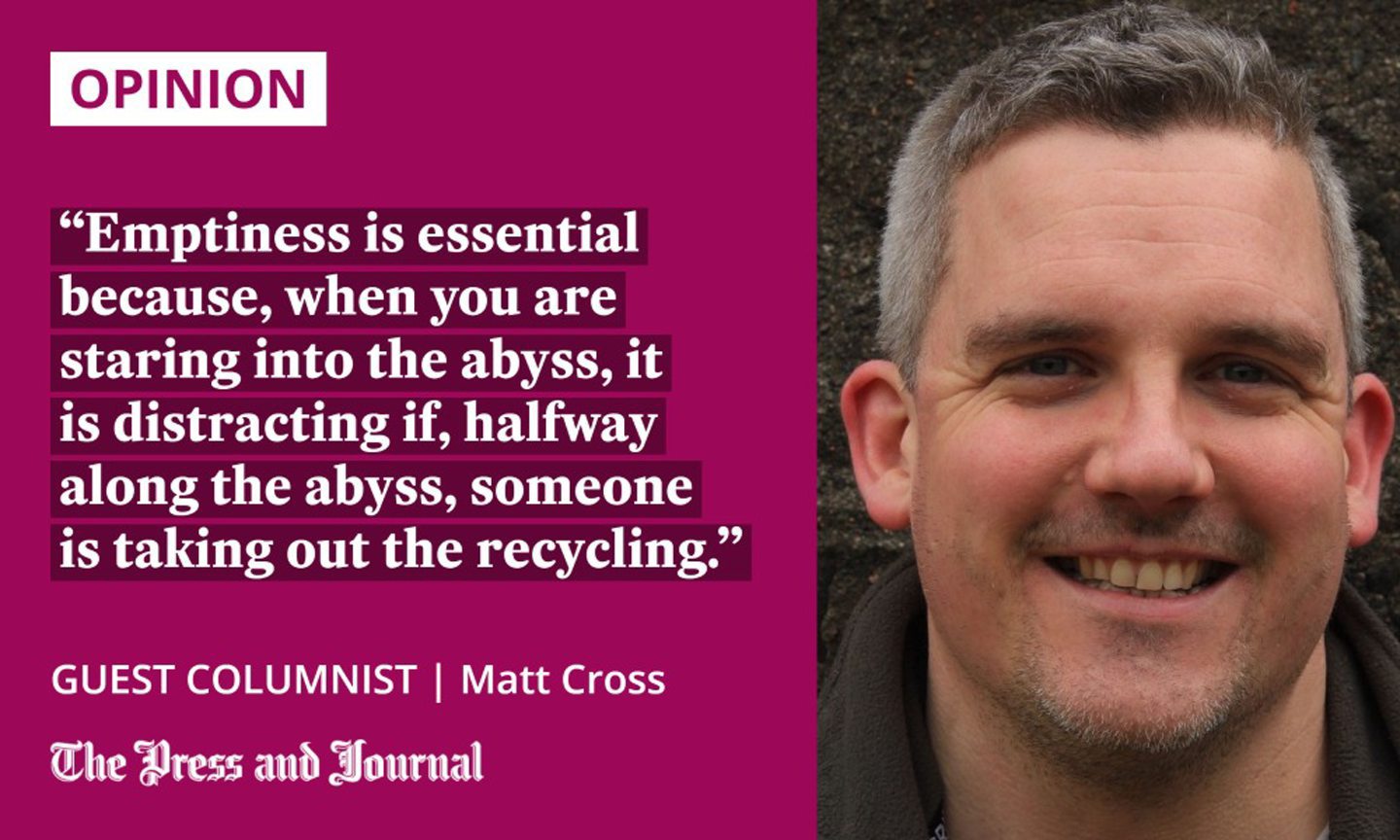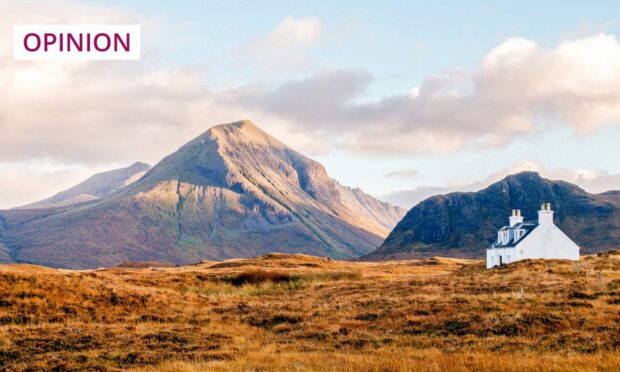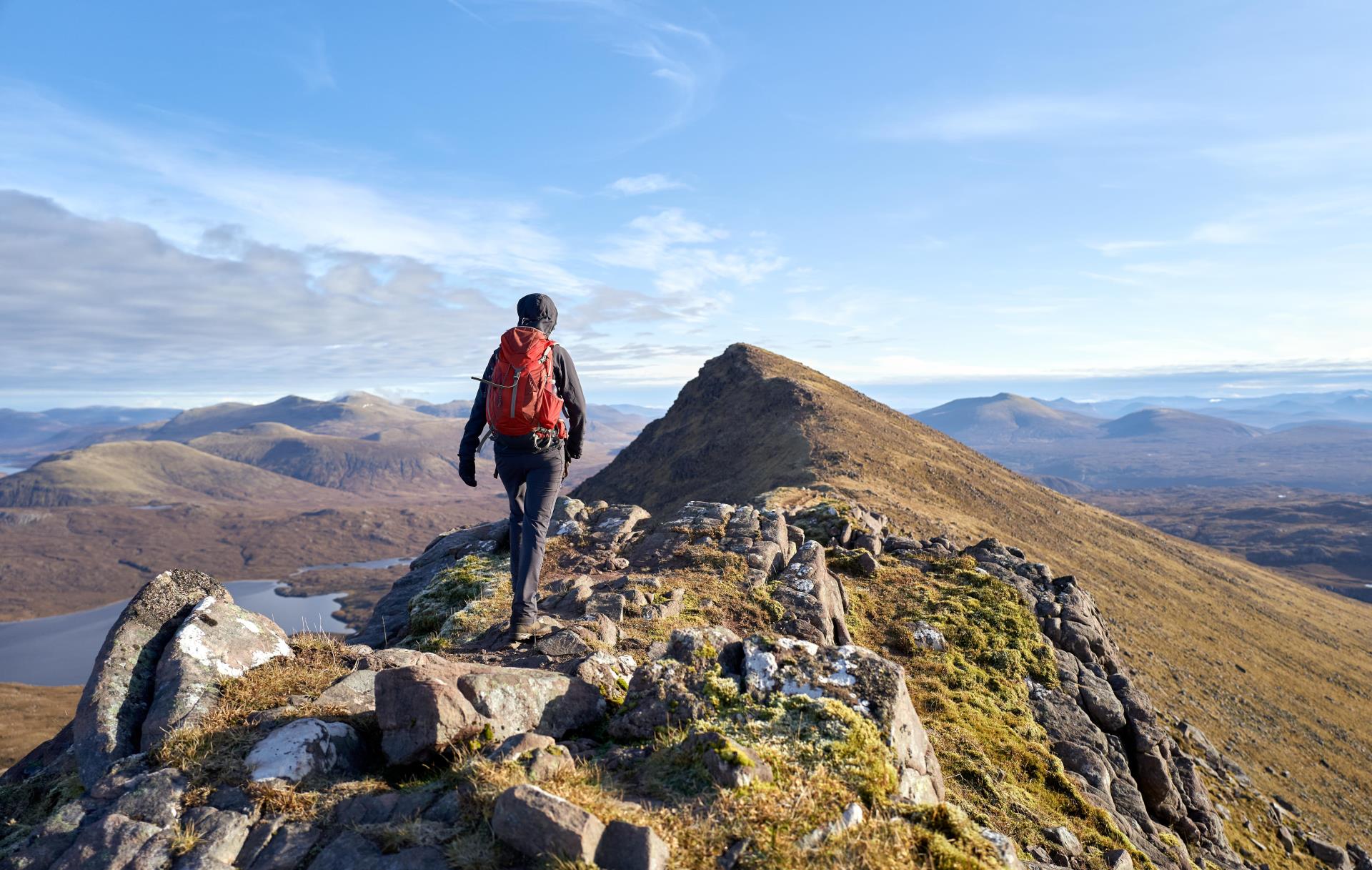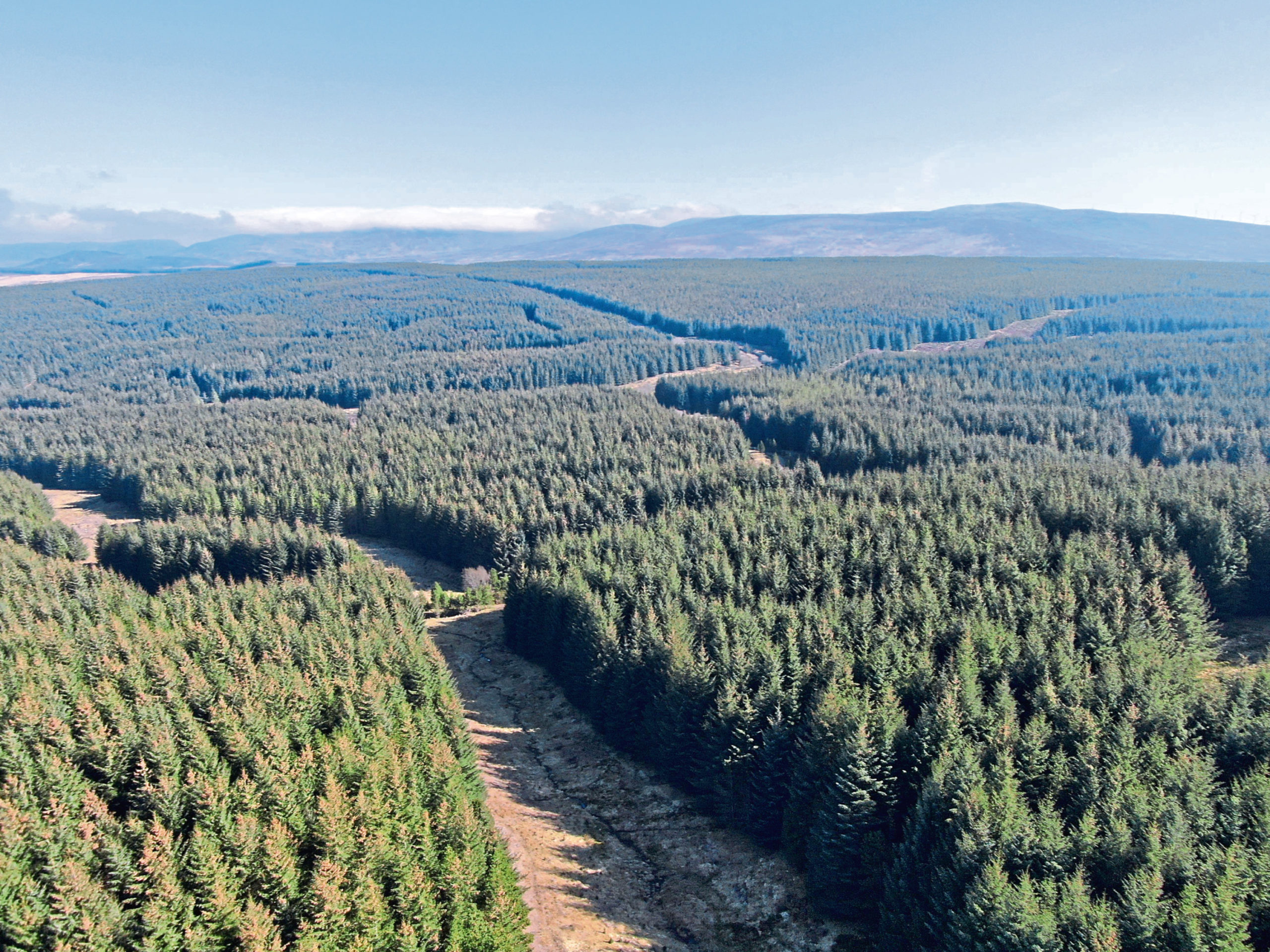A certain type of man has always had an attraction to wild places.
In previous centuries, they may have seen themselves exploring barren wastes and surveying mighty vistas. Or, perhaps they imagined conquering surly mountains and glowering, eagle-like, from their heights.
In the 21st century, conquering is discouraged and, in the era of Google Maps, exploring seems a trifle ridiculous; you can just zoom in. Today, these people go to wild places to explore themselves, conquer their doubts and survey their personal growth. For the wildernista who doesn’t fancy being eaten by a bear or who wants to limit their carbon footprint, Scotland can be made to meet their needs

This approach to the land needs the land to be empty. Emptiness is essential because, when you are staring into the abyss, it is distracting if, halfway along the abyss, someone is taking out the recycling.
In Scotland, the need for emptiness presents a problem; Scotland is a busy place. Even in the distant bits, there are people, living their lives, working, eating Kit Kats, watching telly, washing the car.
In those very few places where people are truly absent, the unmistakable trace of past people remains, often in tragic forms. Because it is uncomfortable to admit that your spiritual growth was enabled by brutal 19th-century depopulation, the chosen solution for many is simply to ignore people, both past and present. Pretend they just aren’t or weren’t there. Create, in your head, the empty landscape you need.
The ‘lone enraptured male’
Writer Edward Docx was slammed on social media recently after he wrote a piece for the Observer that emptied the Isle of Skye, population 13,143. He chose a “crofter’s cottage” as a place to “go alone – to write, to think, to be”.
Of his holiday house, he says: “The place is remote and I see nothing out of the window above the desk save for weather and the mountains”. This is curious because, if it’s the cottage he is outside in the photo that accompanies the article, it has a panoramic view of the A863. Edward could only have missed the traffic if he carefully chose which window to look out of.
The poet Kathleen Jamie called these people, who find emptiness everywhere, “the lone enraptured male”. In a brilliant review of The Wild Places by Robert Macfarlane, she wrote: “There are no other voices, no Welsh or Irish or differently accented English. It has to be thus, of course, because if we start blethering to the locals the conceit of empty ‘wild’ will be lost.”
A destructive feedback loop
I live in a rural parish of the south-west of Scotland, some parts of which you could call “wild”. We don’t mind a few lone enraptured males about the place, especially if, when they have finished being enraptured, they pop into the village shop for a Calippo and a shot of the wifi.
Policy-makers have been taught that islands aren’t for life, they are for visitors’ self-improvement
The problem arises when, en masse, they start writing newspaper articles and books, and when they start getting TV shows made about themselves. When their view of rural Scotland becomes dominant, a destructive feedback loop starts.
Often, decision-makers don’t live in rural communities. Much of their understanding of those places is gathered through the media. If the media presents rural Scotland not as a place where residents have needs and aspirations, but instead as somewhere to “go alone – to write, to think, to be”, then policy-makers make policy and spend money to shape it into that.
View over to Scarba from the Isle of Seil pic.twitter.com/vD2E78bUmg
— Hebridean Baker (@Hebridean_Baker) January 2, 2020
So, rural Scotland empties out as it becomes a worse place to live and a better one for solitary reflection. Steadily, the cycle gets locked in.
The effects of this can be seen not just in what has happened, but also in what has not. The island of Scarba was once home to 14 families, but, since the 1960s, it has been home to no one. There are many reasons policy has failed to tackle this, but it is hard not to think that one of them is that policy-makers have been taught that islands aren’t for life, they are for visitors’ self-improvement.
Rural Scotland must respond
In my own parish, half the land is owned by Forestry and Land Scotland, the old Forestry Commission. It is speckled with abandoned houses. In decades, “the commission” have not reroofed a single house or moved in a single family.
Of course, they were busy with their mission of slathering the whole Southern Uplands in identical trees. But, a more enlightened approach to rural policy, which really believed that people belong in rural Scotland, would have tasked the national forestry agency with repeopling the countryside.
The lone enraptured males are not going away, and they are not going to quiet down. They are going to keep staring wistfully and musing deeply and watching the wall as the campervans go by. Sadly, editors and producers will keep paying them to do so.
But rural Scotland needs to respond and to say clearly that we are here. In places where people are absent, our absence is an aberration and should be actively addressed, not preserved as a backdrop for the personal development of outsiders.
Matt Cross is a writer and journalist based in Ayrshire, interested in wildlife, land reform and rural communities



Conversation